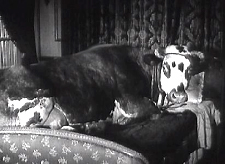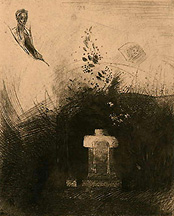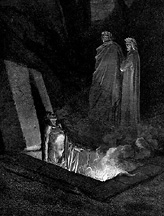![]()
 Lists
are a
way of defining yourself through other people’s
work, the work of people able to scratch those itches you can’t
quite reach on your own. If you're
looking to make some sort of statement, it’s
not enough to say, “I
love Citizen
Kane”*, and
think you’ve demonstrated anything interesting about yourself.
Orson Welles used it to demonstrate something interesting about himself.
No matter how much you'd like to avoid a lot of tedious creative
labor, you have to show at least a little initiative.
Lists
are a
way of defining yourself through other people’s
work, the work of people able to scratch those itches you can’t
quite reach on your own. If you're
looking to make some sort of statement, it’s
not enough to say, “I
love Citizen
Kane”*, and
think you’ve demonstrated anything interesting about yourself.
Orson Welles used it to demonstrate something interesting about himself.
No matter how much you'd like to avoid a lot of tedious creative
labor, you have to show at least a little initiative.
For example, if you combine Citizen Kane with nine other movies about sleds, that might get you somewhere. You need a list or, if that sort of linearity doesn't appeal, a collage; then you have a bit of a statement.
The Dark Energy list is an attempt at constructing a sort of dysfunctional universe, a bit like the one in which we actually live but more - how to put it? - stylized: a seductive hell-hole, an infernal paradise. This parallel universe is realistic in the sense that it feels (to one person, at any rate) like the one we physically occupy. But to get that effect (to the satisfaction of this particular person), it’s necessary that the on-screen cosmos - which, large as it is, is a radical condensation of its corporeal prototype - display certain hallucinatory overtones and a touch of hysteria... an untidiness in the overall. This is how the on-screen cosmos distills the big physics of titanic explosions and other outrageous forces that characterize the universe of Einstein (see Marlon Brando) as well as the inexplicable randomness of Planck and Bohr’s universe of the sub-atomic (see Gloria Grahame).
When you think of a movie list in this way - as a parallel universe - watching individual movies becomes something a little different from what it was. Instead of immersing yourself for an an hour and a half, or whatever, in one contained work, you enter a portal to something larger and more vague. If, for example, you are watching A Shot in the Dark*, Ivan the Terrible* will be there in your peripheral vision. I’m not entirely sure that’s a good thing, but there you have it.
 Dark
Energy, in contrast to the efforts of those three great physicists,
is not an attempt to clarify anything... which, I trust, is evident
by
now. Movies,
after all, are like dreams. They make sense in their own context. But
this context is only partly delineated by the components of the film
itself and the intentions of the people who made it. It is also subject
to the hall of mirrors that determines the perceptions of the individual
viewer*. Which is to say, not
all movies make the same sort of sense to all
people. I'm not here to
recommend the movies on this site; I'm just here to say I like them. A
lot.
Dark
Energy, in contrast to the efforts of those three great physicists,
is not an attempt to clarify anything... which, I trust, is evident
by
now. Movies,
after all, are like dreams. They make sense in their own context. But
this context is only partly delineated by the components of the film
itself and the intentions of the people who made it. It is also subject
to the hall of mirrors that determines the perceptions of the individual
viewer*. Which is to say, not
all movies make the same sort of sense to all
people. I'm not here to
recommend the movies on this site; I'm just here to say I like them. A
lot.
For a movie to be in this particular group, it has to elicit some sort of fetishistic adoration. But there are other parameters. They may turn to rubber at the edges, but they are there nonetheless. Movies not within those parameters are not on the list no matter how much I like them. There are lots of comedies, westerns, dramas, and science fiction numbers that get right to where I live but don't show up in the set because they don’t bear sufficient witness to that dark shifty something-or-other I can’t define but which rings a tiny tin bell of the sub-conscious when presented. Each Dark Energy entry has to contribute, in some way, to that parallel universe. Not change it, really, but give it a slight variance, a slight tweak of the angle or tint.
I’m not much interested in talking about movies I don’t care for. Dark Energy is a labor of love, but it’s not my position that others should like, let alone love, the same things I do. Art (not just movies) is a wild untamed beast. Attempts to domesticate it are sometimes instructive and even artistic in their own right but ultimately - and I'm quite happy about this - futile.
Parameters or no, every choice is subjective. The hand of either God or Plato is nowhere in evidence. These movies are linked by a latticework of fragile associations, closer to the allusive symbolism of Baudelaire than the literal symbolism of Dante. Darkenergetics.com isn’t a shot at pushing a theoretical take on movies. It wavers between being a “clinking, clanking, clattering collection of caliginous junk” on the one hand and an epic poem on the other. The components are quite diverse but have been accumulated with an overall effect in mind. I think the web is well suited to this sort of fevered rumination. The web is our Tower of Babel.
 There
are two abstractions that don’t get much attention in Dark
Energy: completeness - everything is open ended - and
ranking. Whether or not Floating Weeds* is a better movie than Pet
Sematary* is
not an issue here. Dark Energy is, in effect, a single entity
built of these 800+ components.
Taken as a whole, Dark Energy can be seen as a gorgeous,
treacherous piece like The Flowers of Evil or The
There
are two abstractions that don’t get much attention in Dark
Energy: completeness - everything is open ended - and
ranking. Whether or not Floating Weeds* is a better movie than Pet
Sematary* is
not an issue here. Dark Energy is, in effect, a single entity
built of these 800+ components.
Taken as a whole, Dark Energy can be seen as a gorgeous,
treacherous piece like The Flowers of Evil or The
 Inferno.
Inferno.
What might normally be considered art and what might normally be considered pulp are both required to make this thing play.
Val Lewton:
The producer Val Lewton worked that juncture out of necessity. His budgets (small), time constraints (tight), and pre-ordained titles (I Walked with a Zombie*, The Curse of the Cat People*) were the studio's way of making sure he wouldn’t even think of going high-concept like Orson Welles with his recent RKO flop, the above mentioned Citizen Kane. Still, from 1942 to 1946, Lewton gave RKO nine highly original horror movies permeated with a personal and melancholy view of life and death. He is one of the rare producer auteurs of film history. The producer is supposed to keep the director from straying too far from whatever it is the financiers have in mind... from getting too creative. Lewton did well with the budgets and time-frames, so it's a tribute to his own creative abilities that RKO, 'round about film seven, assigned an executive producer to keep an eye on the producer.
Val Lewton is the presiding essence of Dark Energy.
